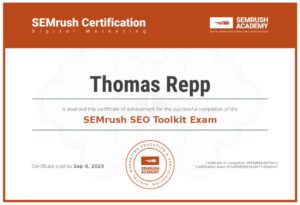 In the rapidly evolving world of search, where B2B competition is fierce and market dynamics are constantly shifting, mid-size businesses (10 million to 1 billion in sales) find themselves navigating challenging terrain. To gain a competitive edge and expand market share, these enterprises must leverage every available tool in their arsenal.
In the rapidly evolving world of search, where B2B competition is fierce and market dynamics are constantly shifting, mid-size businesses (10 million to 1 billion in sales) find themselves navigating challenging terrain. To gain a competitive edge and expand market share, these enterprises must leverage every available tool in their arsenal.
One such powerful tool is Search Engine Optimization (SEO), a digital marketing strategy that has proven effective for numerous B2B players.
In this article, I explore the potential of SEO for mid-size B2B industrials and how it can be harnessed to boost your company’s brand visibility, attract qualified leads, and, secure a larger slice of your industrial niche.
Understanding SEO in the B2B Context
SEO is not solely the domain of consumer-focused businesses; it holds immense potential for B2B enterprises as well. The primary goal of SEO is to enhance a website's visibility (i.e., brand visibility) on search engine result pages (SERPs) when users search for relevant keywords.
Sort of like plastering billboards along all the Interstates in American that promote your industrial brand.
In the B2B context, where industrial buyers often conduct extensive online research before making purchasing decisions, a strong online presence can be a game-changer moving forward.
Understanding the Opportunity for Mid-Size B2Bs
Before we get into further discussion of SEO for the B2B mid-size market it is critical to understand the glaring deficiency that exists in the realm of content development for the mid-size B2B industrial market.
For many reasons, the B2B mid-size industrial market has ignored the use of great content and SEO for brand visibility and lead generation. Most industrials I talk to and monitor are sitting on a gold mine of opportunity to gain market share.
Without a robust content strategy, mid-size B2B industrials risk fading into obscurity in a market where your company’s brand visibility is key to success in a connected marketplace.
Keyword Research and Industry Relevance
For mid-size B2B industrials, the first step in an effective SEO strategy is comprehensive keyword research. I highly encourage your marketing personnel to get really good at online research tools such SEMrush.com. Google Analytics are great, but SEMrush provides competitive analysis that Google cannot compete with.
Understanding the key terms and phrases that potential customers use when searching for products or services in their industry is crucial. These keywords should align with the business's offerings and reflect the language and semantic nuances used within the industry.
Tools like SEMrush also give your phrases and topics that your competitors are ranking for so that you can always be one step ahead on the SERPs (Search Engine Return Page).
Your chosen keywords should not only be relevant but also demonstrate a balance between search volume and competition. By optimizing website content, meta tags, and other on-page elements with these strategically selected keywords, mid-size B2B industrials can enhance their brand visibility and increase the likelihood of attracting high-quality leads.
If all this sounds daunting, never fear. A basic undestanding of tools like SEMrush will place all the necessary data on one dashboard for your convenience.
If you are going to compete online your marketing folks or agency must build a great website that is designed from the ground up with SEO and brand visibility in mind.
Otherwise, do not waste your time and resources.
Content is King: Establishing Authority and Expertise
In the B2B arena, where complex solutions and technical specifications often play a pivotal role, establishing authority and expertise is paramount. High-quality, informative, and industry-relevant content can position a mid-size B2B industrial as a thought leader within its industrial niche.
Creating a company blog or resource center (i.e., a knowledgebase specific to your industry) with regularly updated content not only provides value to potential customers but also sends positive signals to search engines. Search algorithms favor fresh, relevant content, and businesses that consistently produce such content are more likely to rank higher on SERPs.
Think of a line of giant billboards one after another along the Interstate and your company's billboard is first in line with an easy to read brand message ...rendering the rest of the billboards irrelevant.
That's what great content and SEO can do for your company in a connected world.
Additionally, content marketing efforts can be extended beyond the website to include whitepapers, case studies, videos, webinars and industry reports. These resources not only serve as valuable assets for potential customers but also contribute to backlink building – another critical aspect of SEO. Quality backlinks from reputable sources enhance a website's credibility and signal to search engines that the content is reliable and authoritative.
Technical Optimization for Improved User Experience
In the competitive B2B landscape, user experience is non-negotiable. Technical aspects of a website, such as page speed, mobile responsiveness, and overall site architecture, play a crucial role in how search engines evaluate and rank a site.
Mid-size B2B industrials should invest in technical optimization to ensure that their websites load quickly and function seamlessly across various devices. A user-friendly website not only enhances the overall customer experience but also contributes to improved search rankings.
As I said earlier, make sure your web designer works closely with an SEO specialist that depend on tools such as SEMrush.com.
Local SEO for Targeted Market Penetration
While many B2B industrials operate on a national or international scale, local SEO should not be overlooked. For mid-size businesses looking to gain market share in specific regions or target local industries, optimizing for local search is essential.
Creating a Google My Business profile, optimizing location-specific keywords, and obtaining positive customer reviews can significantly impact local search rankings. This is especially crucial for industries where personal relationships and local partnerships play a vital role in securing business deals.
Using specialty research tools like SEMrush’s Listing Management tool are highly effective at managing your local SEO efforts.
Again, this SEO tactic is rarely used by regional industrials and provides an significant opportunity to enhance market share in your region.
Analytics and Continuous Improvement
An effective SEO strategy is an evolving process that requires constant monitoring and adjustment. Mid-size B2B industrials should leverage analytics tools, like SEMrush and marketing automation platforms like HubSpot to track website performance, user behavior, and keyword rankings. By analyzing this data, businesses can identify areas for improvement, capitalize on successful strategies, and adapt to changing market dynamics. The classic “rinse and repeat” tactic.
In conclusion, mid-size B2B industrials can indeed use Search Engine Optimization (SEO) as a powerful tool to gain market share in their respective industries. By strategically implementing keyword research, producing high-quality content, optimizing technical aspects, and leveraging local SEO, these businesses can enhance their online brand visibility, attract qualified leads, and ultimately carve out a larger share of the market.
As the digital landscape continues to evolve, embracing SEO as an integral part of the marketing strategy can position mid-size B2B industrials for sustained success in the competitive business-to-business arena.
Need a little help crafting your B2B marketing strategy? , give me a call or contact me via email.
Author:Tom Repp
A passionate marketer attempting to change the way industrial marketers leverage the web as a growth-oriented, lead generation machine. View all posts by Tom Repp





